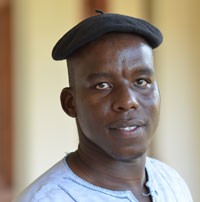Oil for Africa’s development and US energy security: Shared or competing interests?
Introduction
The context of this project is US foreign policy toward oil-producing African countries in the post-Cold War era, that is, the nature of the relationship between the USA and oil producing African countries. The significance of this research is to understand the extent to which this relationship has been mutually or distinctively beneficial. Against this background, this project has sought to achieve the following two central objectives: i) To examine whether Africa’s oil wealth is a terrain for shared or competing interests between itself and the USA; ii) To assess the involvement of the USA in what scholars have termed, “the new scramble for Africa.”
Methodology
This study relied heavily on the critical review of scholarly, official, and popular literature. It uses primary data, including policy documents, government publications, and official speeches. It also utilizes secondary sources, such as scholarly journals, books, magazines, and newspapers. The data generated was analyzed using the critical discourse approach.
Results
This study has established that it is quite difficult to find convincing evidence to wholly blame the USA for the impoverished situation of the oil-producing African countries. It is interesting to note that countries such as Botswana and Norway, among others, have not been blighted by the presence of natural resources. However, the USA and other African trading partners of African countries have the responsibility to promote good governance in Africa as a way of enhancing conducive trading environment.
Conclusion
The main finding for this research is that the USA and Africa have more shared interests in the natural resources sector, than competing interests. Natural resource endowments of African countries (such as oil and gas) could be mutually beneficial to both the USA and oil-producing countries. However, the role of the USA and its multinational oil-producing companies in environmental degradation, grievance construction, corruption, and agitation in oil-rich communities such as Nigeria’s Niger Delta does not benefit ordinary people. This research also found that the “curse of leadership” is central to the problems of Africa. The local leadership have a mandate for the efficient management of resources and earnings. In the long run, it is in the best interest of the USA for African nations to be developed and become self-reliant. This will also enhance the capacity of African nations to buy products from the USA. Thus the USA should pursue policies that do not result in internal conflicts, such as resource-related wars.
Supervisors
Ikechukwu Umejesi, University of South Africa, South Africa
Michael Thompson, Risk, Policy and Vulnerability Program, IIASA
Note
Kgothatso Brucely Shai, University of Limpopo, South Africa, is a South African citizen and was funded by IIASA’s South African National Member Organization during the SA-YSSP.
Please note these Proceedings have received limited or no review from supervisors and IIASA program directors, and the views and results expressed therein do not necessarily represent IIASA, its National Member Organizations, or other organizations supporting the work.

CONTACT DETAILS
Principal Research Scholar Exploratory Modeling of Human-natural Systems Research Group - Advancing Systems Analysis Program
Principal Research Scholar Systemic Risk and Resilience Research Group - Advancing Systems Analysis Program
Principal Research Scholar Cooperation and Transformative Governance Research Group - Advancing Systems Analysis Program
Further information


